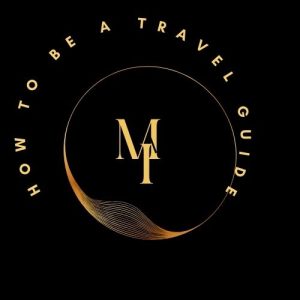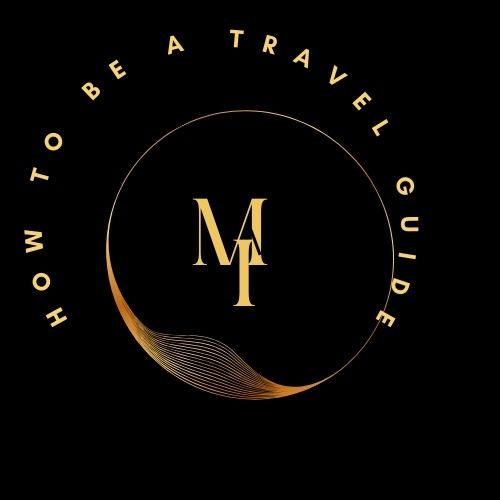Contents
- 1 How to be a travel guide
- 2 Introduction of How to be a travel guide
- 3 Understanding the Role of a Travel Guide for How to be a travel guide
- 4 Essential Skills for Becoming a Successful Travel Guide
- 5 Educational Requirements and Certifications
- 6 Developing Your Expertise as a Travel Guide
- 7 Building Your Career as a Travel Guide
- 8 Managing Tours and Groups
- 9 Specializing in Niche Travel Guiding
- 10 Leveraging Technology in Travel Guiding
- 11 The Business Side of Being a Travel Guide
- 12 Ethical Considerations in Travel Guiding
- 13 Health and Safety Considerations for Travel Guides
- 14 Table: Essential Skills and Qualities of a Successful Travel Guide
- 15 Frequently Asked Questions
- 15.1 H4: What qualifications do I need to become a travel guide?
- 15.2 H4: How much can I expect to earn as a travel guide?
- 15.3 H4: Is it necessary to speak multiple languages to be a travel guide?
- 15.4 H4: How do I handle difficult or disruptive travelers in a group?
- 15.5 H4: What are some common challenges faced by travel guides?
- 16 Conclusion of How to be a travel guide
- 17 External Resources of How to be a travel guide
Learn “How to be a travel guide” with our comprehensive guide. Explore tips, skills, and steps to succeed in this career.
How to be a travel guide

How to Be a Travel Guide: A Comprehensive Guide to Launching Your Career in the Tourism Industry
Introduction of How to be a travel guide
How to be a travel guide : Starting a career as a movement guide is a great way to combine your passion for movement with your desire to share your experiences with others. We will go over the intricacies of becoming a successful travel guide in this comprehensive guide. From acquiring essential certifications and developing fundamental skills to becoming the best at narrating and overseeing collective vibes, we will cover every aspect of this lucrative profession. This article will give you the data and pieces of information you truly need to win as a development guide, whether you’re enthused about showing the unforeseen, yet important fortunes of your old area or driving daring undertakings all around the planet. As a result, we should begin our exploration of master guiding by examining its role as a development guide that has a lasting impact on travelers despite shifting foundations.
Understanding the Role of a Travel Guide for How to be a travel guide
Defining the Travel Guide Profession of How to be a travel guide
A movement guide, otherwise called a local escort, is an expert who leads gatherings of guests through different objections, giving data, experiences, and help all through their excursion. The job entails a wide range of responsibilities, including planning itineraries and handling logistics, as well as entertaining and instructing tourists about a location’s history, culture, and attractions.
Key Responsibilities of a Travel Guide of How to be a travel guide
- Itinerary planning and execution
- Providing accurate and engaging information about destinations
- Ensuring the safety and comfort of travelers
- Managing group dynamics and resolving conflicts
- Handling logistics and unexpected situations
- Promoting cultural understanding and responsible tourism
Types of Travel Guides of How to be a travel guide
Travel guides can specialize in various areas, catering to different types of travelers and experiences. Some common types include: How to be a travel guide
- City guides
- Nature and wildlife guides
- Adventure tour guides
- Historical and cultural guides
- Food and culinary tour guides
- Language-specific guides
Understanding these various specializations can assist you with centering your vocation way and foster skill in a specific specialty.
Essential Skills for Becoming a Successful Travel Guide
Communication Skills
Effective communication is the cornerstone of a successful travel guide career. You’ll need to: How to be a travel guide
- Speak clearly and confidently in front of groups
- Adapt your communication style to diverse audiences
- Listen actively to travelers’ questions and concerns
- Use non-verbal communication effectively
Knowledge and Research Abilities
A great travel guide is a fountain of knowledge. Develop your expertise by: How to be a travel guide
- Continuously researching destinations, history, and culture
- Staying updated on current events and local developments
- Learning from experienced guides and local experts
- Developing a system for organizing and recalling information
Organizational and Time Management Skills
Keeping tours on track requires excellent organizational skills: How to be a travel guide
- Create and adhere to detailed itineraries
- Manage time effectively to cover all planned activities
- Coordinate with various service providers and venues
- Handle documentation and paperwork efficiently
Interpersonal Skills
Building rapport with travelers is crucial for a positive experience: How to be a travel guide
- Practice empathy and emotional intelligence
- Develop conflict resolution techniques
- Foster a welcoming and inclusive atmosphere
- Adapt to different personality types within groups
Problem-Solving Abilities
Unexpected situations are common in travel. Be prepared to: How to be a travel guide
- Think quickly on your feet
- Develop contingency plans for various scenarios
- Remain calm under pressure
- Make decisive actions when necessary
Language Skills
While not always required, language skills can significantly enhance your capabilities:
- Learn the basics of multiple languages
- Focus on languages relevant to your target destinations
- Practice language immersion techniques
- Understand cultural nuances in communication
Educational Requirements and Certifications
Formal Education
While a specific degree isn’t always mandatory, certain educational backgrounds can be beneficial:
- Tourism and Hospitality Management
- History or Anthropology
- Geography or Environmental Studies
- Language and Cultural Studies
Professional Certifications
Obtaining relevant certifications can enhance your credibility and job prospects:
- World Federation of Tourist Guide Associations (WFTGA) certifications
- National or regional tour guide certifications
- Emergency treatment and CPR certificates Specialty certificates (e.g., eco-the travel industry, experience the travel industry)
Continuing Education
The travel industry is constantly evolving. Stay current by:
- taking part in seminars and workshops Taking part in web-based courses and online classes Joining proficient affiliations engaging in personal exploration and travel
Developing Your Expertise as a Travel Guide
Mastering Destination Knowledge
Become an expert on your chosen destinations:
- Examine the customs, culture, and history of the area. Explore places that aren’t often visited. Foster associations with nearby organizations and inhabitants Make your own maps and guides.
Honing Your Storytelling Skills
Engage your audience through compelling narratives:
- Learn the art of storytelling techniques
- Incorporate personal anecdotes and local legends
- Use humor and dramatic elements appropriately
- Practice timing and delivery
Developing a Unique Guiding Style
Stand out from other guides by:
- Identifying your strengths and passions
- Creating signature tours or experiences
- Incorporating interactive elements into your tours
- Developing a personal brand
Staying Updated on Industry Trends
Keep your finger on the pulse of the travel industry:
- Follow travel blogs and publications
- Attend travel trade shows and conferences
- Network with other professionals in the field
- Embrace new technologies and tools
Building Your Career as a Travel Guide
Gaining Experience
Start building your experience through various avenues:
- Volunteer as a guide for local organizations
- Offer free walking tours in your area
- Intern with established tour companies
- Lead trips for friends and family
Creating a Professional Portfolio
Showcase your skills and experiences:
- Develop a professional website or blog
- Create video demonstrations of your guiding abilities
- Collect testimonials from satisfied travelers
- Document your certifications and training
Networking and Building Relationships
Expand your opportunities through networking:
- Join professional associations for tour guides
- Attend industry events and meetups
- Collaborate with other guides and travel professionals
- Engage with local tourism boards and visitor centers
Marketing Yourself as a Travel Guide
Promote your services effectively:
- Utilize social media platforms
- Develop partnerships with travel agencies and hotels
- Create and distribute promotional materials
- Offer special promotions or themed tours
Managing Tours and Groups
Planning and Preparing for Tours
Ensure smooth tour experiences through careful planning:
- Research and create detailed itineraries
- Conduct pre-tour briefings with travelers
- Prepare necessary equipment and materials
- Coordinate with local service providers
Managing Group Dynamics
Foster a positive group atmosphere:
- Establish clear expectations and ground rules
- Encourage interaction among group members
- Address conflicts promptly and diplomatically
- Accommodate diverse needs and preferences
Handling Emergencies and Unexpected Situations
Be prepared for the unexpected:
- Develop emergency response plans
- Maintain up-to-date contact information for local authorities
- Carry a well-stocked first aid kit
- Practice scenario-based training
Providing Exceptional Customer Service
Go above and beyond for your travelers:
- Anticipate and address individual needs
- Offer personalized recommendations
- Follow up with travelers after the tour
- Implement feedback for continuous improvement
Specializing in Niche Travel Guiding
Adventure Tourism
Cater to thrill-seekers and outdoor enthusiasts:
- Acquire pertinent confirmations (e.g., wild medical aid, rock climbing) Acquire expertise in particular activities like kayaking and hiking Underline security conventions and chance administration Make novel, testing agendas
Cultural and Historical Tours
Dive deep into the rich tapestry of destinations:
- Work with experts in cultural history and history in the area. Foster themed visits (e.g., workmanship history, culinary customs) Include excursions to lesser-known historical locations. authentic cultural exchanges can be facilitated.
Eco-Tourism and Sustainable Travel
Promote responsible and sustainable tourism practices:
- Learn about local ecosystems and conservation efforts
- Partner with environmentally conscious businesses
- Educate travelers on sustainable practices
- Design low-impact tour experiences
Accessible Tourism
Cater to travelers with disabilities or special needs:
- Learn about accessibility requirements and regulations
- Develop tours that accommodate various mobility needs
- Partner with accessible transportation and accommodation providers
- Train in assisting travelers with different types of disabilities
Leveraging Technology in Travel Guiding
Utilizing Mobile Apps and Digital Tools
Enhance your guiding capabilities with technology:
- Use navigation and mapping apps for efficient routing
- Incorporate augmented reality for immersive experiences
- Implement digital payment systems for convenience
- Utilize translation apps for multilingual communication
Creating Engaging Digital Content
Expand your reach through online platforms:
- Develop virtual tours and live-streaming experiences
- Create informative and entertaining video content
- Write blog posts and articles about your destinations
- Engage with followers on social media platforms
Managing Online Bookings and Reviews
Streamline your business operations:
- Set up an online booking system
- Respond promptly and professionally to reviews
- Encourage satisfied travelers to leave positive feedback
- Use analytics to track and improve your online presence
The Business Side of Being a Travel Guide
Legal Considerations
Ensure you’re operating within the law:
- Obtain necessary licenses and permits
- Understand liability and insurance requirements
- Comply with local tourism regulations
- Protect your intellectual property
Financial Management
Run a sustainable guiding business:
- Set competitive yet profitable pricing
- Manage cash flow and expenses effectively
- Plan for seasonal fluctuations in demand
- Invest in professional development and equipment
Building a Sustainable Career
Think long-term for career success:
- Diversify your income streams (e.g., writing, consulting)
- Develop a retirement plan
- Consider scaling your business by training other guides
- Explore opportunities for career advancement in the tourism industry
Ethical Considerations in Travel Guiding
Promoting Responsible Tourism
Lead by example in sustainable travel practices:
- Educate travelers on local customs and etiquette
- Support local economies and businesses
- Minimize environmental impact during tours
- Respect wildlife and natural habitats
Cultural Sensitivity and Inclusivity
Create welcoming experiences for all travelers:
- Research and respect cultural norms of destinations
- Address unconscious biases in your guiding approach
- Accommodate diverse dietary and religious requirements
- Promote accessibility and inclusivity in your tours
Maintaining Professional Boundaries
Balance friendliness with professionalism:
- Establish clear guidelines for interactions with travelers
- Avoid conflicts of interest (e.g., commission-based recommendations)
- Maintain confidentiality and respect privacy
- Handle romantic advances or inappropriate behavior professionally
Health and Safety Considerations for Travel Guides
Physical Fitness and Self-Care
Maintain your health to meet the demands of the job:
- Develop a regular exercise routine
- Practice stress management techniques
- Maintain a balanced diet, even while traveling
- Ensure adequate rest between tours
Managing Travel-Related Health Risks
Protect yourself and your travelers:
- Stay up-to-date on vaccinations
- Be aware of common travel-related illnesses
- Carry appropriate medication and first aid supplies
- Know how to access healthcare in various destinations
Safety Protocols and Risk Management
Prioritize safety in all aspects of your tours:
- Conduct regular safety briefings
- Perform risk assessments for all activities
- Maintain communication devices and emergency contact information
- Stay informed about local safety conditions and travel advisories
Table: Essential Skills and Qualities of a Successful Travel Guide
| Skill/Quality | Description | Importance (1-5) |
|---|---|---|
| Communication | Ability to convey information clearly and engagingly | 5 |
| Knowledge | In-depth understanding of destinations and subjects | 5 |
| Organization | Efficient planning and execution of tours | 4 |
| Interpersonal | Building rapport and managing group dynamics | 5 |
| Problem-solving | Handling unexpected situations effectively | 4 |
| Adaptability | Flexibility in dealing with diverse situations and people | 4 |
| Storytelling | Engaging travelers through compelling narratives | 4 |
| Cultural Sensitivity | Respecting and promoting cultural understanding | 5 |
| Physical Stamina | Endurance for long days and varied activities | 3 |
| Technology Proficiency | Utilizing digital tools to enhance tour experiences | 3 |
Frequently Asked Questions
H4: What qualifications do I need to become a travel guide?
While prerequisites shift, best travel guides have a mix of formal schooling in fields like the travel industry or history, proficient confirmations, and broad individual travel insight. It’s important to have strong communication skills and a thorough understanding of where to go.
H4: How much can I expect to earn as a travel guide?
The location, area of expertise, and level of experience all have a significant impact on earnings. The United States of Authority of Work Measurements, the middle yearly pay for visit and travel guides was $28,180 in May 2020, with the top 10% acquiring more than $46,650.
H4: Is it necessary to speak multiple languages to be a travel guide?
While not generally needed, multilingual abilities can fundamentally upgrade your profession possibilities and capacity to work with assorted gatherings of explorers. Even a basic understanding of the relevant languages can be helpful.
H4: How do I handle difficult or disruptive travelers in a group?
Address issues speedily and secretly whenever the situation allows. Keep quiet and expert, repeat visit rules if essential, and be ready to include neighborhood specialists assuming way of behaving becomes perilous or unlawful.
H4: What are some common challenges faced by travel guides?
Unexpected itinerary changes, dealing with diverse group dynamics, emergency situations, and maintaining a work-life balance due to irregular schedules and frequent travel are common obstacles.
Conclusion of How to be a travel guide
How to be a travel guide : A career as a travel guide provides a one-of-a-kind combination of excitement, challenge, and personal development. You can build a rewarding career that allows you to share your passion for exploration with others by establishing a solid foundation of knowledge, honing essential skills, and embracing continuous learning. Recall that accomplishment as a movement guide goes past essentially recounting realities; it’s tied in with making critical encounters, cultivating social comprehension, and motivating a feeling of miracle in your voyagers.
Maintain your adaptability to the constantly shifting travel industry landscape as you advance in your career. Embrace new advancements, stay focused on moral and supportable practices, and never fail to focus on the groundbreaking force of movement. With devotion, excitement, and a promise to greatness, you can turn into a movement guide who leads visits as well as opens personalities, spans societies, and makes enduring recollections for voyagers from around the world.
Being a travel guide is a never-ending adventure. Every chance to learn, develop, and share your unique perspective with the world should be taken advantage of. As you guide others through new encounters, you’ll track down that you, as well, are on a wonderful excursion of disclosure and self-improvement. So go ahead and start your exciting career as a travel guide with self-assurance and the knowledge and insights from this guide. Numerous tourists are eager to explore the world with you as their reliable guide and companion.
External Resources of How to be a travel guide
- World Federation of Tourist Guide Associations (WFTGA): https://wftga.org/
How much to travel agents make



1 thought on “How to be a travel guide”